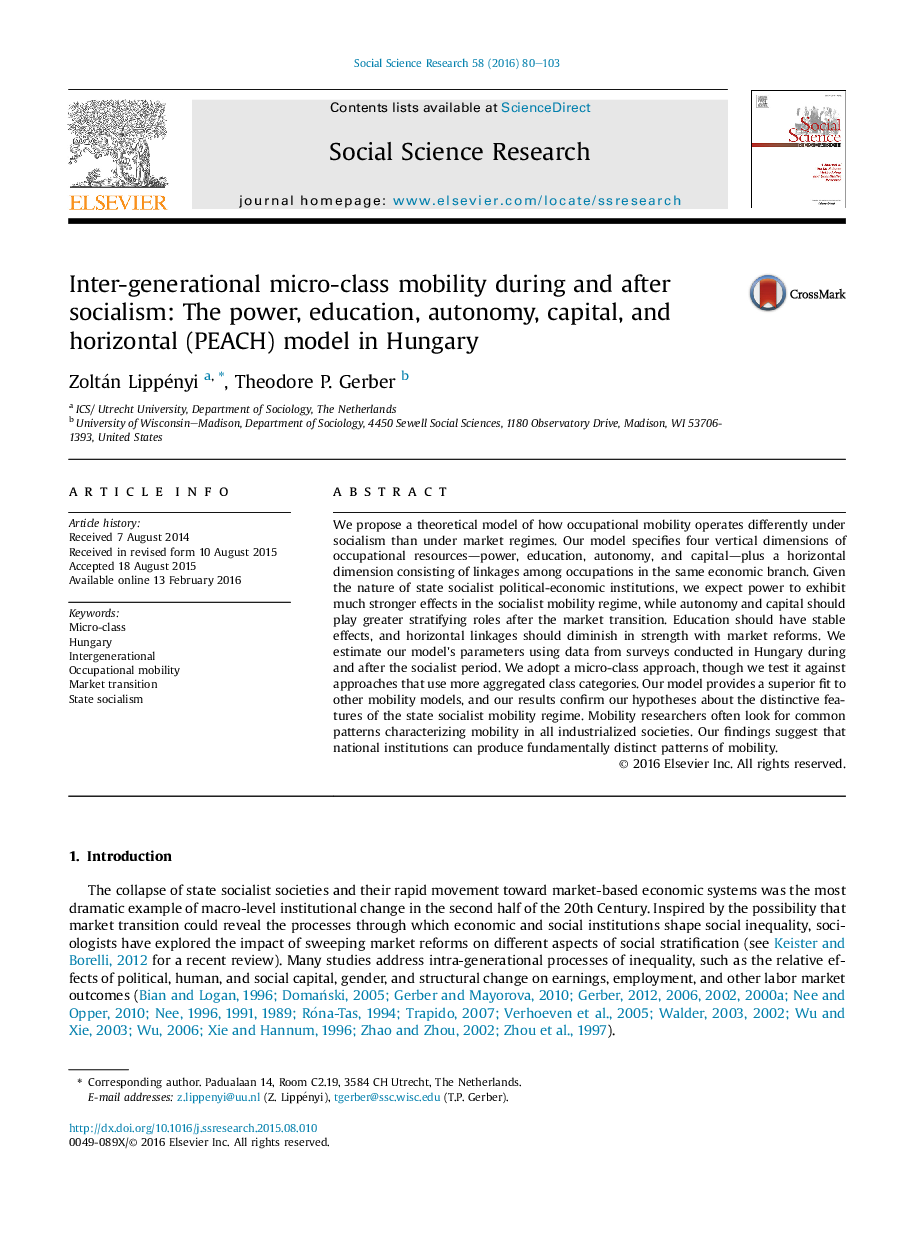| کد مقاله | کد نشریه | سال انتشار | مقاله انگلیسی | نسخه تمام متن |
|---|---|---|---|---|
| 955579 | 1476117 | 2016 | 24 صفحه PDF | دانلود رایگان |
• We propose a theoretical model of occupational mobility under state socialism.
• We test our model using Hungarian surveys during and after the socialist period.
• Political power is influential in the socialist regime, but not under market regimes.
• Autonomy and capital play greater stratifying roles after the market transition.
• Horizontal linkages diminish in strength with market reforms.
We propose a theoretical model of how occupational mobility operates differently under socialism than under market regimes. Our model specifies four vertical dimensions of occupational resources—power, education, autonomy, and capital—plus a horizontal dimension consisting of linkages among occupations in the same economic branch. Given the nature of state socialist political-economic institutions, we expect power to exhibit much stronger effects in the socialist mobility regime, while autonomy and capital should play greater stratifying roles after the market transition. Education should have stable effects, and horizontal linkages should diminish in strength with market reforms. We estimate our model's parameters using data from surveys conducted in Hungary during and after the socialist period. We adopt a micro-class approach, though we test it against approaches that use more aggregated class categories. Our model provides a superior fit to other mobility models, and our results confirm our hypotheses about the distinctive features of the state socialist mobility regime. Mobility researchers often look for common patterns characterizing mobility in all industrialized societies. Our findings suggest that national institutions can produce fundamentally distinct patterns of mobility.
Journal: Social Science Research - Volume 58, July 2016, Pages 80–103
